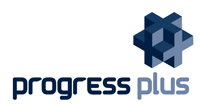Top Manufacturing Softwares
Manufacturing software is a digital tool that streamlines production and manages resources effectively. It helps manufacturers oversee operations, control inventory, and ensure quality. By integrating various functions, it enhances efficiency from planning to execution. This type of software supports tasks like scheduling, supply chain management, and logistics. Users can track production cycles, ... Read More
96 companies found
Product Description
SolidCAM is a versatile software solution designed to seamlessly integrate with your existing CAD system, providing comprehensive, high-quality machining functionalities. Tailored for manufacturing companies, SolidCAM simplifies and streamlines the entire process of creating CNC (Computer Numerical Control) machining operations. It's an ideal choice for those looking to improve efficiency while re... Read More
Users
- • No Data
Industries
- • No Data
Market Segment
- • No Data
Global Shop Solutions
Product Description
Global Shop Solutions is a company that offers a comprehensive software package designed to make running a manufacturing business a whole lot easier. Their product serves as an all-in-one solution that helps manufacturers manage different parts of their operations, from inventory and production to scheduling and financials. The software is built to improve efficiency and streamline processes, maki... Read More
Users
- • No Data
Industries
- • No Data
Market Segment
- • No Data
TrendMiner
Product Description
TrendMiner is a software designed to make it easier for businesses to analyze and understand their industrial processes. If you're working in a field like manufacturing, pharmaceuticals, or chemicals, this tool equips you with valuable insights from the data your operations produce every day. The software is essentially a digital assistant that helps you spot patterns and trends without needing ... Read More
Users
- • No Data
Industries
- • No Data
Market Segment
- • No Data
ProgressPlus
Product Description
ProgressPlus is a project management software designed to help businesses streamline their processes and achieve their goals more efficiently. Providing a user-friendly experience, it offers a suite of tools that simplify planning, tracking, and collaboration for teams of all sizes. From startups to established enterprises, ProgressPlus caters to various types of organizations, making it easy to... Read More
Users
- • No Data
Industries
- • No Data
Market Segment
- • No Data
Product Description
Productoo is a robust platform designed to simplify and streamline business operations for manufacturing companies. It's built to help organizations increase efficiency, improve collaboration, and reduce downtime by offering a suite of tools that cater to a wide range of manufacturing needs. With Productoo, you can bring all your business processes into one place. Whether it's managing productio... Read More
Users
- • No Data
Industries
- • No Data
Market Segment
- • No Data
Retrocausal
Product Description
Retrocausal is a practical and efficient software designed to streamline and enhance workplace productivity for businesses of all sizes. By providing easy-to-use tools, Retrocausal helps teams to better manage their tasks, projects, and workflows. At its core, Retrocausal focuses on improving communication and collaboration among team members. It achieves this by offering a clear and intuitive pl... Read More
Users
- • No Data
Industries
- • No Data
Market Segment
- • No Data
Product Description
TCS iON is a software solution designed specifically for small and medium-sized businesses. It offers a range of cloud-based services that help companies streamline their operations, making daily tasks easier and more efficient. Instead of investing heavily in IT infrastructure, businesses can use TCS iON to access vital services over the internet. One of the standout features of TCS iON is its u... Read More
Users
- • No Data
Industries
- • No Data
Market Segment
- • No Data
Product Description
Makersite is an intuitive software designed for businesses looking to simplify and enhance their product lifecycle management. At its core, Makersite brings together data on materials, supply chains, and environmental impact, enabling companies to make smarter, more sustainable decisions about their products. Imagine dealing with complex product information scattered across various sources and t... Read More
Users
- • No Data
Industries
- • No Data
Market Segment
- • No Data
Product Description
Prodsmart is a software designed for manufacturers that helps manage and streamline their production processes. By providing a clear overview of every step in the manufacturing workflow, Prodsmart helps companies become more efficient and productive. Whether you're dealing with production lines or custom orders, this software supports different kinds of manufacturing needs by keeping track of ever... Read More
Users
- • No Data
Industries
- • No Data
Market Segment
- • No Data
Product Description
shipX is designed to make shipping and logistics easier for businesses of all sizes. Picture a tool that acts as your personal logistics assistant, helping you handle everything from tracking packages to managing inventory and dealing with returns. This software aims to streamline your operations, saving you both time and money. One of the main benefits of shipX is its user-friendly interface. Yo... Read More
Users
- • No Data
Industries
- • No Data
Market Segment
- • No Data
What are the key features of Manufacturing software?
Manufacturing software is essential in optimizing production processes and enhancing operational efficiency. Below are the key features typically found in manufacturing software:
1. Inventory Management
Efficient inventory management is crucial for maintaining optimal stock levels. Manufacturing software helps in tracking inventory in real-time, reducing the risk of overstocking or stockouts. This includes managing raw materials, in-process items, and finished goods.
2. Production Planning and Scheduling
Manufacturing software provides tools for planning and scheduling production activities. It offers capabilities in organizing resources, managing timeframes, and ensuring that production runs smoothly. This feature helps align production schedules with demand forecasts and available resources.
3. Quality Management
Ensuring product quality is a fundamental concern for manufacturers. Manufacturing software includes quality management systems (QMS) that help in standardizing quality checking procedures, tracking defects, and ensuring compliance with industry standards.
4. Supply Chain Management
For seamless operations, a robust supply chain management feature is critical. Manufacturing software assists in coordinating with suppliers, managing procurement, and optimizing logistics and distribution. It ensures that supply chain activities align with production needs.
5. Shop Floor Control
This feature provides real-time visibility and control over shop floor activities. Manufacturing software helps monitor equipment, track work in progress, and control production activities, enhancing productivity and operational efficiency.
6. Bill of Materials (BOM) Management
A Bill of Materials is essential for product manufacturing. Manufacturing software allows for creating and managing BOMs, ensuring each component of a product is accounted for and available when needed. It helps minimize delays and errors in production.
7. Maintenance Management
Equipment maintenance is critical for uninterrupted production. Manufacturing software supports maintenance management by scheduling regular maintenance, keeping track of equipment status, and reducing downtime due to equipment failure.
8. Cost Control and Estimation
Cost management is a key aspect of manufacturing. Software solutions help in estimating production costs, tracking expenses, and identifying areas for cost reduction. This feature aids businesses in maintaining profitability and competitiveness.
9. Integration with Other Systems
Manufacturing software often integrates with other enterprise systems like ERP, CRM, and accounting software. This integration helps streamline operations and ensures cohesive functioning across all departments, from procurement to sales.
10. Reporting and Analytics
Insightful reporting and analytics features are vital for decision-making. Manufacturing software provides analytics tools that help in understanding production metrics, identifying trends, and making data-driven decisions to enhance overall efficiency.
Manufacturing software enables manufacturers to improve processes, manage resources efficiently, and meet production goals. By leveraging the features of manufacturing software, businesses can automate repetitive tasks, minimize errors, and enhance productivity.
How can Manufacturing software improve production efficiency?
Manufacturing software plays a crucial role in enhancing production efficiency. Here are the various ways it can optimize manufacturing processes:
Streamlined Production Processes
Manufacturing software helps streamline production by automating routine tasks and workflows. Automation reduces the chances of human error, thereby improving consistency and quality. By managing tasks like scheduling, inventory tracking, and quality control, this software allows manufacturers to focus on core production activities, leading to time and cost savings.
Real-Time Data and Analytics
Access to real-time data is a significant advantage of manufacturing software. It provides insights into production performance, machinery utilization, and labor productivity. Real-time analytics enable manufacturers to make informed decisions quickly, optimizing processes and increasing efficiency. By identifying bottlenecks and inefficiencies early, managers can implement corrective measures promptly.
Inventory Management
Effective inventory management is critical for maintaining production efficiency. Manufacturing software can monitor inventory levels accurately and automate reorder processes when stock reaches predetermined thresholds. This prevents overstocking and stockouts, ensuring that production lines are always equipped with the necessary materials, reducing downtime, and optimizing resource utilization.
Improved Communication and Collaboration
Manufacturing software enhances communication across departments and teams. Whether through integrated messaging systems, dashboards, or project tracking tools, teams have access to the same data and updates. Improved collaboration means fewer miscommunications and faster resolution of production issues, contributing to a more efficient production process.
Quality Control and Assurance
Incorporating quality control features, manufacturing software ensures that each production stage adheres to predefined quality standards. Automated checks and inspections help maintain high product quality, reducing the need for rework and minimizing waste. Consistent quality control contributes to production efficiency by ensuring each product meets the required standards without delay or additional costs.
Equipment Maintenance and Management
Manufacturing software often includes tools for predictive and preventive maintenance. These features help monitor equipment condition and predict potential failures before they occur. Scheduled maintenance based on software insights reduces unplanned downtime and extends the life of machinery. Efficient equipment management contributes significantly to maintaining high levels of production efficiency.
Resource Allocation and Optimization
Resource allocation is another area where manufacturing software impacts production efficiency. By analyzing resource utilization, software helps in redistributing labor, machines, and materials more effectively. This optimization ensures that each aspect of production operates at peak efficiency, reducing idle time and resource wastage.
Customization for Specific Needs
Manufacturing software can be tailored to meet the specific needs of different industries and operations. Customization allows manufacturers to address unique challenges and use specialized tools to manage their production processes more efficiently. By aligning the software solutions closely with manufacturing requirements, businesses can maximize productivity and efficiency.
In summary, manufacturing software improves production efficiency through automation, real-time data, inventory management, improved communication, quality control, equipment management, resource optimization, and customization. By leveraging these capabilities, manufacturers can enhance their production processes, leading to higher output and profitability.
What industries benefit most from using Manufacturing software?
Manufacturing software plays a pivotal role in numerous industries by streamlining processes, improving productivity, and reducing costs. Below are some sectors that particularly benefit from the use of Manufacturing software:
Automotive Industry
The automotive sector relies heavily on Manufacturing software to manage the assembly line and optimize production. It allows carmakers to maintain high precision during manufacturing, ensuring consistency and quality. The software also supports inventory management and supply chain coordination, essential for the timely delivery of parts and components.
Electronics and Semiconductor Industry
In the electronics and semiconductor industries, precision and efficiency are vital. Manufacturing software assists in designing complex circuits and managing production cycles. It helps to monitor every stage of the production process, ensuring minimal defects. Furthermore, it aids in handling the fast-paced demands of electronic goods and devices, ensuring timely product rollouts.
Pharmaceutical and Biotech Industry
Pharmaceutical and biotech companies use Manufacturing software to ensure compliance with stringent regulatory standards. It supports in managing formulae, recipes, and batch production, ensuring that each product meets the required standards. Moreover, it assists in maintaining transparency and traceability, crucial in an industry where precision and regulation are paramount.
Aerospace and Defense Industry
The aerospace and defense industry is characterized by intricate designs, stringent quality standards, and extensive supply chains. Manufacturing software helps manage these complexities by offering tools for design, simulation, and quality assurance. It ensures that each component meets exact specifications and integrates seamlessly into larger systems.
Food and Beverage Industry
The food and beverage industry benefits from Manufacturing software through improved recipe management, quality control, and regulatory compliance. It helps companies maintain consistent product quality and adhere to health and safety standards. The software aids in tracking ingredients from source to shelf, essential for traceability and customer satisfaction.
Consumer Goods Industry
In the consumer goods sector, Manufacturing software facilitates efficient production planning and management. It ensures that production aligns with consumer demand while optimizing costs. The software helps in managing the entire product lifecycle from concept to shelf, including packaging, labelling, and distribution.
Textile and Apparel Industry
Textile and apparel manufacturers leverage Manufacturing software for design, production planning, and inventory management. The software helps in optimizing material usage and reducing waste while ensuring quality. It also supports customization and rapid production cycles, responding quickly to fashion trends and consumer demands.
Heavy Machinery and Equipment Industry
Manufacturers of heavy machinery and equipment benefit from Manufacturing software through enhanced design capabilities and production efficiency. It enables precise engineering and assembly, ensuring each piece meets customer specifications. Additionally, the software aids in managing complex supply chains and lifecycle management.
Manufacturing software enhances operational efficiency, quality control, and compliance across a wide range of industries, providing tools to manage complex processes with precision and reliability.
How does Manufacturing software help with inventory management?
Real-time Inventory Tracking
Manufacturing software enhances inventory management by offering real-time tracking capabilities. This feature allows companies to monitor stock levels at any given moment. With real-time data, manufacturers can ensure they have the necessary materials on hand and avoid production delays. Real-time tracking reduces the risk of overstocking or understocking, thereby optimizing inventory levels.
Demand Forecasting
Effective demand forecasting is another benefit of using manufacturing software for inventory management. By analyzing historical sales data and market trends, the software helps predict future demand. Accurate forecasts allow manufacturers to adjust their inventory levels accordingly, ensuring they meet customer demands without holding excessive stock. This optimizes inventory turnover and reduces carrying costs.
Automation of Processes
Manufacturing software automates various inventory management processes. Automation minimizes manual interventions, which can lead to errors and inefficiencies. With automated replenishment, for example, the software triggers orders for materials or products when inventory reaches a predefined threshold. This ensures timely availability of stock and helps maintain an uninterrupted production process.
Inventory Visibility Across Locations
For manufacturers with multiple locations, inventory visibility across all sites is crucial. Manufacturing software provides a centralized platform to view inventory details across the entire organization. This visibility allows companies to make informed decisions about stock transfers and reallocation, ensuring optimal inventory distribution and reducing the likelihood of shortages or excess stock at any location.
Integration with Supply Chain Management
Manufacturing software often integrates with supply chain management systems, facilitating better coordination between inventory, production, and distribution processes. This integration provides a unified view of the supply chain, ensuring that manufacturers can align their production schedules with supplier deliveries. By synchronizing these processes, companies can minimize lead times, enhance order fulfillment, and improve overall supply chain efficiency.
Reduction in Inventory Costs
By optimizing inventory levels and minimizing carrying costs, manufacturing software contributes to cost reductions in inventory management. Efficient inventory management lowers storage costs, reduces waste, and prevents losses due to obsolete stock. Enterprises can reallocate these savings to other areas of their operations, fostering a more efficient manufacturing process.
Enhancing Inventory Accuracy
Maintaining accurate inventory records is essential for effective inventory management. Manufacturing software helps ensure accuracy by recording every inventory transaction, such as receipts, shipments, and adjustments. By providing a detailed audit trail, the software supports precise inventory accounting and helps manufacturers identify discrepancies quickly.
Supporting Lean Manufacturing
Manufacturing software supports lean manufacturing principles that aim to eliminate waste and increase efficiency. By providing accurate inventory data, the software assists in identifying areas where inventory can be adjusted to minimize waste and optimize production flows. This approach leads to more efficient use of resources and supports the continuous improvement of manufacturing processes.
What should small manufacturers consider when choosing Manufacturing software?
Assess Your Needs
Before selecting any Manufacturing software, small manufacturers should start by assessing their unique requirements and goals. This involves understanding the specific processes and workflows that need improvement, as well as identifying any current bottlenecks within their manufacturing operations. Consideration should also be given to whether the software will need to address production scheduling, inventory management, or quality control systems. By clearly defining these needs, manufacturers can narrow down their software options to those that align most closely with their operational goals.
Budget Considerations
Budget plays a crucial role in the final decision-making process. For small manufacturers, financial constraints are often tighter, thus it is important to consider upfront costs and any recurring expenses associated with deploying Manufacturing software. Additionally, evaluate whether the software requires additional investments, such as integration with existing systems or staff training. Understanding these financial implications will help small manufacturers identify a solution that offers the best balance between cost and functionality.
User-Friendliness
The complexity of deploying new Manufacturing software can vary greatly. Therefore, small manufacturers should prioritize user-friendliness in their selection process. Software with an intuitive interface and easy-to-understand functionalities can significantly reduce the learning curve for staff. Furthermore, emphasis should be placed on finding a solution that requires minimal technical expertise to operate effectively, ensuring a smooth transition and minimizing disruptions to ongoing operations.
Scalability
Small manufacturers should factor in potential growth when choosing Manufacturing software. Scalability is crucial as it allows businesses to expand their operations without having to switch systems or incur substantial new costs. An ideal software solution will support the manufacturer’s growth trajectory, offering features and integrations that can be easily upgraded as the business scales.
Vendor Support
Quality customer support from the software vendor is essential. Small manufacturers will benefit from robust support, especially during the initial implementation phase and any subsequent updates. Evaluate the vendor’s reputation for technical support, including the availability of resources such as tutorials, documentation, and user communities. Strong vendor support can ensure quick resolutions to potential issues, reducing downtime and maintaining productivity.
Integration Capabilities
Integration with existing systems can streamline operations and enhance workflow efficiency. When selecting Manufacturing software, small manufacturers should consider how well it integrates with other tools they currently use, such as accounting software or supply chain management systems. Smooth interoperability between systems ensures data consistency and reduces the need for manual data entry, leading to improved accuracy and efficiency.
Industry-Specific Solutions
Lastly, small manufacturers should explore the availability of industry-specific Manufacturing software. Solutions tailored to specific sectors often come equipped with features that address unique industry challenges, enabling manufacturers to optimize processes with greater precision. By choosing industry-specific software, manufacturers can gain a competitive edge through more targeted functionalities and improved operational insights.
Focusing on these considerations can aid small manufacturers in selecting the most suitable Manufacturing software for their operations, facilitating greater efficiency and growth potential.
How does Manufacturing software ensure quality control in production?
Manufacturing software is crucial in maintaining quality control during production processes. This software offers numerous tools and systems to monitor and manage production, ensuring products meet specific quality standards.
Real-Time Monitoring and Data Collection
Manufacturing software provides real-time monitoring and data collection which are key elements in quality control. By continuously tracking production processes, it helps identify defects or discrepancies in real-time. This immediate feedback loop allows manufacturers to adjust processes quickly, thereby reducing waste and maintaining product quality.
Process Standardization
Another critical function is process standardization. Manufacturing software ensures that every step of the production process is consistent and replicable. By maintaining a uniform process, it minimizes variability between product batches, leading to higher quality consistency. This is achieved through predefined workflows and standard operating procedures embedded within the software.
Quality Testing and Inspections
The software facilitates automated quality testing and inspections, enabling manufacturers to conduct regular assessments during production. Through machine vision and sensor technologies, it can detect product defects and anomalies before the products leave the production line. Scheduling these inspections at various stages ensures continuous oversight, preserving the integrity of the manufacturing process.
Compliance with Standards
Manufacturing software helps organizations comply with industry standards and regulations. It provides tools for documenting processes and results, ensuring compliance with required standards. The software can store reference documents and create audits, which are essential for maintaining quality assurance over time. Compliance with standards not only ensures product quality but also protects manufacturers from potential regulatory penalties.
Analytics and Reporting
Manufacturing software comes with robust analytics and reporting capabilities. It can aggregate data collected from the production floor to generate comprehensive reports. These reports help identify trends and insights related to product quality. By analyzing this data, manufacturers can make informed decisions to enhance production processes, ultimately improving product quality.
Inventory and Supplier Management
Quality control extends to managing inventory and supplier relations. Manufacturing software optimizes inventory management by monitoring material quality and supplier performance. Better oversight ensures that only high-quality materials enter the production process, directly influencing the quality of the final product. The software can flag issues with suppliers and recommend alternative sources, reducing risks associated with material defects.
Employee Training and Support
In terms of human resources, manufacturing software supports quality control by providing training modules and support for employees. It ensures that staff is adequately trained to manage and maintain equipment and processes, reducing the chances of human error. By integrating training into the software, manufacturers can ensure consistent knowledge dissemination across the workforce.
Continuous Improvement
Finally, manufacturing software encourages continuous improvement through feedback and iterative processes. By continually gathering production data and feedback, it facilitates process optimization. This commitment to ongoing improvement ensures that quality control mechanisms evolve, adapting to new industry standards and innovations.
Overall, Manufacturing software ensures quality control through real-time oversight, standardized processes, automated testing, compliance checks, data analytics, supplier management, and employee training. Each aspect supports a comprehensive quality assurance strategy that aligns with industry demands and consumer expectations.
What role does cloud computing play in Manufacturing software solutions?
Flexibility and Scalability
Cloud computing greatly enhances the flexibility and scalability of Manufacturing software. Traditionally, manufacturers needed to invest in significant hardware and infrastructure to run their systems. With cloud solutions, this requirement is minimized. The software can quickly scale up or down based on the user's needs without the need for additional capital investment. This flexibility allows manufacturers to respond to changing demands and market conditions efficiently.
Cost Efficiency
Implementing cloud-based Manufacturing software helps in reducing costs significantly. Operating on a subscription basis removes the need for large upfront capital investments in hardware and software. Manufacturers pay only for what they use, making it a cost-effective solution. Overhead costs like maintenance, updates, and server management are handled by the service provider, leading to additional savings.
Remote Accessibility
One of the noteworthy advantages of cloud-based Manufacturing software is remote accessibility. Manufacturing operations often require managers to access production data from various locations, including offsite facilities. With cloud computing, authorized personnel can log in from any location to monitor and manage operations in real-time. This facilitates quicker decisions and improves overall operational efficiency.
Enhanced Collaboration
Cloud computing fosters enhanced collaboration across different teams within a manufacturing organization. Teams working in different locations can access the same data and tools simultaneously. This unified access can improve teamwork and streamline communication, leading to better-coordinated activities and more efficient problem-solving.
Improved Data Security
While data security is a concern for many users, cloud solutions offer robust safeguards that are often more secure than on-premise solutions. Leading cloud providers employ advanced security protocols, including encryption and regular audits, to protect sensitive manufacturing data. Automated updates ensure that security measures remain current, safeguarding against potential threats.
Seamless Integration
Cloud-based Manufacturing software is known for its seamless integration capabilities. Cloud solutions can easily connect with existing systems and third-party applications, enhancing operational workflows. This adaptability avoids disruptions and allows manufacturers to leverage their current infrastructure while embracing new technologies.
Real-time Analytics
Real-time analytics is integral to effective Manufacturing software, and cloud computing enriches this capability. By processing data quickly and efficiently in the cloud, manufacturers gain timely insights into their operations. Cloud solutions enable continuous monitoring and immediate analysis of manufacturing processes, improving decision-making and operational efficiency.
Faster Implementation
Cloud-based Manufacturing software solutions are generally faster to implement compared to on-premise systems. The absence of physical infrastructure setup allows manufacturers to deploy necessary software tools quickly. This reduces downtime and facilitates a faster transition to new software systems.
Backup and Disaster Recovery
Cloud computing offers robust backup and disaster recovery options. Manufacturing operations rely on constant data availability, and any loss can result in significant disruptions. Cloud-based solutions ensure data is regularly backed up and can be quickly recovered in case of any incidents. This reliability is crucial in maintaining operational continuity.
Continuous Software Development
Cloud computing facilitates continuous software development without manual interventions. Automatic updates ensure Manufacturing software remains up-to-date with the latest features and improvements. This helps in keeping the software aligned with business objectives without manual interventions, ensuring consistent performance.









